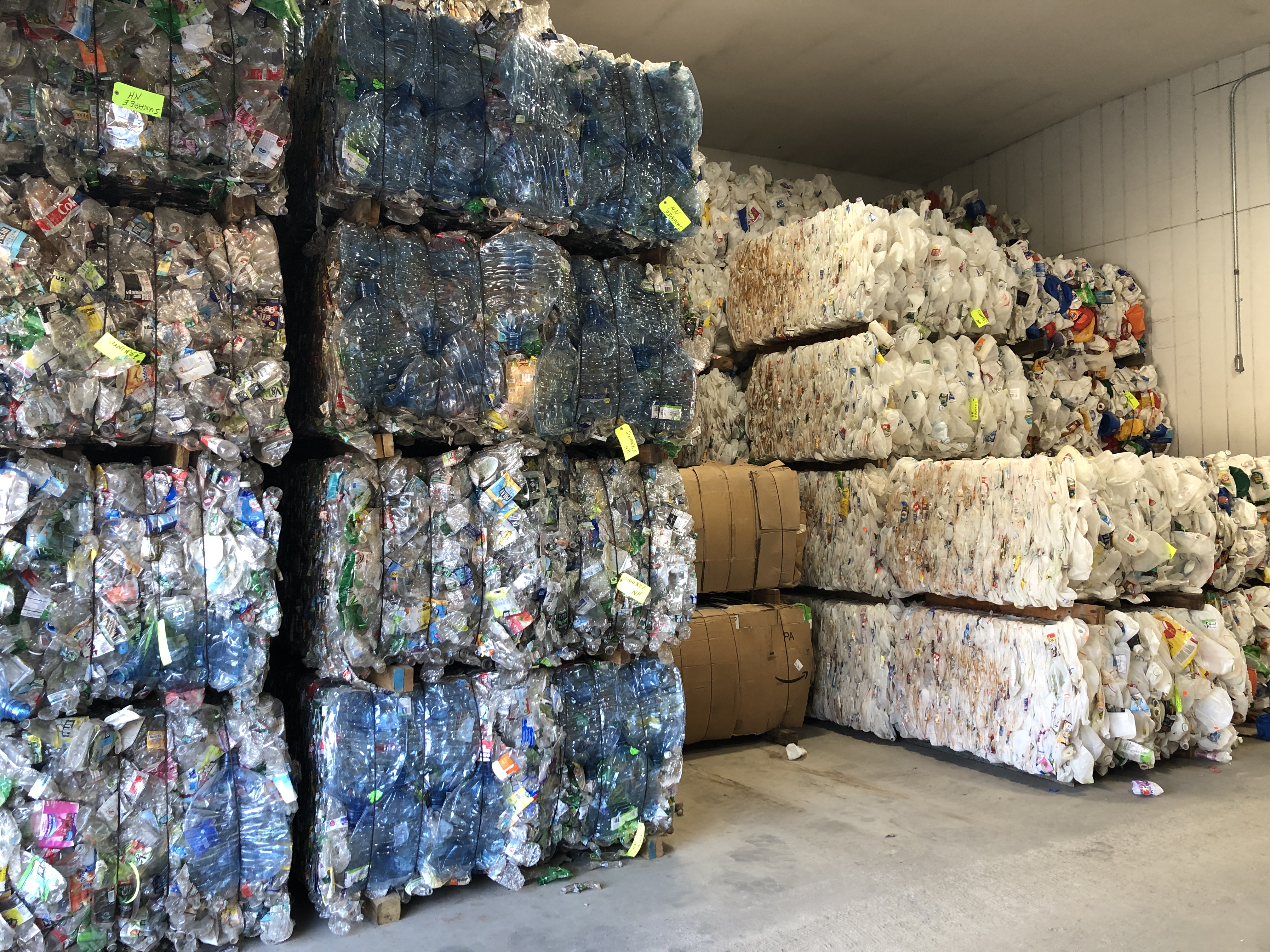For the most part, people bringing their trash to the transfer station, even in a small town such as Unity, take little notice of the people who work there, said Vanessa Keith, who has worked at the town’s Mica Mine Road facility since 1997 and now manages it.
Dropping off trash and recycling, yard waste and appliances tends to be a job done quickly, on the way to some other more enjoyable activity.
“I guess I feel like we’re sort of invisible,” said Keith, who since 2014 also has worked at the transfer station in Lempster, N.H.
Now, however, transfer station employees are considered essential workers, and their role is receiving new attention.
Transfer stations have had to manage the potential hazards of COVID-19, the disease caused by the novel coronavirus.
With the public in need of guidance, not all of the guided have been warmly receptive.
While most people have taken in stride the changes Keith put in place, which included putting up a barrier to keep the public out of the staff’s work area, having people sort their own recycling, and, in the past several weeks, having staff wear masks, a few have been put out.
“I’ve had people question the masks: ‘You really think that’s doing anything?’ ” Keith said. “That’s pretty discouraging to hear. We’re all figuring things out. We don’t need to hear things like that.”
In Thetford, a transfer station patron barked at a couple of employees who weren’t wearing masks, a situation recounted in messages on the town’s Listserv. The patron penned an apology, but also noted that wearing a mask when working around the public was “the respectful thing to do.”
And in Canaan, Town Administrator Mike Samson has sent out sternly worded emails to keep town residents on the straight and narrow when dumping their trash and recycling.
“It is totally unacceptable to be sick with any illness, use a tissue to blow your nose and then put it in with the recyclables,” he wrote in a March 24 message to residents.
The text was all capitals, and red. Transfer station workers have to sort those recyclables, he noted.
“If you want to ignore the threat of COVID, that is your risk. Don’t pass it on,” he wrote.
Precautions such as masks are among a wide range of steps transfer stations have taken since mid-March, said Reagan Bissonnette, executive director of the Northeast Resource Recovery Association.
Initially, some transfer stations shut down completely, while others stopped taking recycling to limit the amount of material employees were handling.
That means recycling is often discarded as trash, a practice allowed in New Hampshire, but not in Vermont or Massachusetts.
Lempster has been handling its recycling this way, Keith said.
“They’ve all reopened at this point,” Bissonnette said.
The Epsom, N.H.-based organization she leads helps municipalities in New England negotiate prices for recyclables and to set up best practices.
Nearly all transfer stations have taken further steps to keep the public and workers safe, including closing offices and other buildings to the public, reducing the flow of traffic to limit access, such as by cutting two lanes down to one, and closing their “swap shops” of free exchange tables. Masks, too, are part of the program.
“We are encouraging all sanitation workers to wear masks, and to wear gloves while handling materials,” Bissonnette said, adding that distancing is still important. “Masks are there to protect you if you can’t effectively socially distance. It’s a way to help prevent the spread of disease.”
In mid-April, the NRRA held a webinar for transfer station operators with an epidemiologist, a recording of which is available on the organization’s website.
In Hartford, the transfer station cut down to offer only the most essential services — disposal of household trash, recycling and food scraps — said Hannah Tyler, the town’s director of Public Works.
All other waste streams, such as scrap metal and yard waste, were shut down.
Officials were concerned that people would clean out their properties while they were stuck at home.
“We really wanted to limit the amount of trips to the transfer station” and to limit the amount of time the public spent there, Tyler said.
Until May 19, the transfer station was open only two days a week, and patrons were allowed to bring no more than three bags of trash, in addition to recycling and food scraps. Since then, the transfer station has reopened to accept all waste and is open an additional day each week.
If they were to reopen fully, Tyler said, “we were afraid we would be inundated.”
In Unity, traffic at the transfer station has been heavier than usual, Keith said. “People are cleaning up their yards and their garages and their barns,” she said.
As an aside, Bissonnette noted that communities are seeing more money for their recyclables.
With many businesses closed, cardboard collected at transfer stations is now worth more than it was before the pandemic, as the need for cardboard boxes is greater and businesses aren’t providing shipping boxes for the recycling stream. The same is true of other paper recycling, she said.
“I think that solid waste operators are often underappreciated and that members of the public don’t often appreciate the amount of training” that goes into their work, Bissonnette said. They’re doing this work year-round, she added, and during the current health crisis it’s a risk for them.
